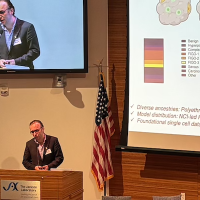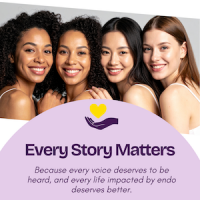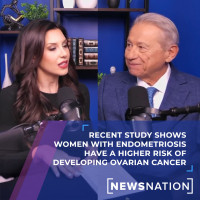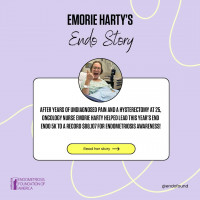Heather Guidone: We are here with Dr. Keckstein from Austria. Thank you for joining us and stopping by. You have been a pioneer and a leader for many years in this field and I wonder if you could just take a second from your perspective as an expert, as a world leader, to tell us how far you think we have come and how much further do we need to go in endometriosis till we “get” there?
Jorg Keckstein, MD: I think we have come very far if I compare it to 20 years ago. We are still dealing with problems making a correct diagnosis making the right concept for surgery or for treatment, and we have learned that medication does not eradicate endometriosis. We had also a problem with pharmaceutical companies which largely supported not doing operations. That was the reason why some patients suffered over years and they have to take very, very bad drugs, not knowing that the endometriosis is still there. This is one important thing. The next step is, if you want to do surgery you should know your own limits.
Heather Guidone: Brilliant!
Jorg Keckstein, MD: If you know these limits then you have to make a correct diagnosis before you start. Like to make an expedition; if you want to go to Mt. Everest you have to know if you can do it. If you start with a patient you should know where you want to go and how far. You have to have a good setting in the preoperative diagnostic procedures, for example, ultrasound, very simple ultrasound. It is very funny, for example in the United States, gynaecologists do not do ultrasound. It is so important because you touch the lesion, you see the lesion, and you get it in your brain together. Not on paper. You do not go to the radiologist and he says, “I have seen something”. I encourage people over here, in the United States, to do the ultrasound. So this, the planning of surgery and the correct approach, if you do not have the experience you have to send the patient somewhere else.
Heather Guidone: Exactly, and I am really glad to hear you say that because that is one thing that the Foundation stresses is a multidisciplinary approach and having the right tools for the job. Is that something that you too would advocate for I suspect, bringing in other surgeons?
Jorg Keckstein, MD: Yes, if you can do it on your own, if you can do everything there is no problem. You should know what you expect if you have to do bowel surgery you do it yourself or get someone, but immediately, not later.
Heather Guidone: Do not make the patient wait for your shortcomings. Wonderful. We are not there yet. What do you think? Ten years, 20 years from now we are going to help the next generation or do we still have a long way to go?
Jorg Keckstein, MD: I think we will help. The consciousness is getting there and the awareness of the disease is becoming better. I think we should do more at school for health education, for girls. Also, for boys to be aware of this disease. This is the first step. Then, we should train the doctors more on how to make the right diagnosis.
Heather Guidone: Thank you so much, really appreciate your time and expertise. Thank you again.








